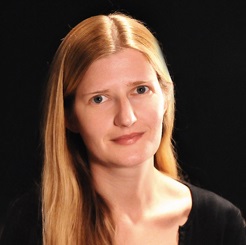Links to external sources may no longer work as intended. The content may not represent the latest thinking in this area or the Society’s current position on the topic.
Making light work: illuminating the future of biomedical optics
Organised by Professor Clare Elwell, Professor Jeremy Hebden, Professor Paul Beard, Professor Elizabeth Hillman and Professor Chris Cooper
The purpose of this meeting is to exploit the recent surge of interest in the development of new diagnostic optical technologies to explore their future transition from benchtop prototypes to routine use in the clinical and life sciences. It will bring together a highly interdisciplinary group of scientists working towards a new generation of monitoring and imaging techniques.
Download the programme here (PDF).
The proceedings of this meeting are scheduled to be published in a future issues of Philosophical Transactions A.
Audio recordings and biographies are available below.


